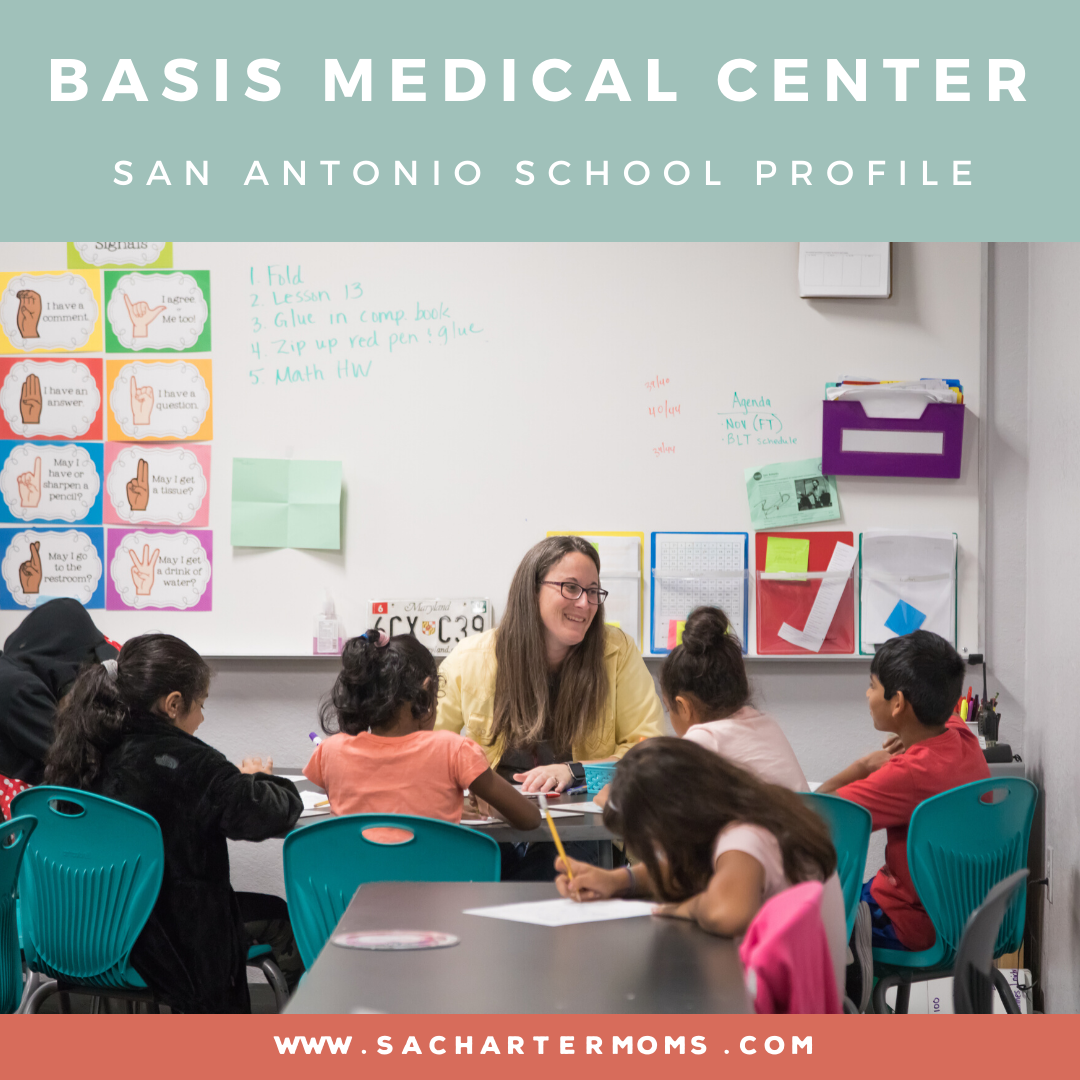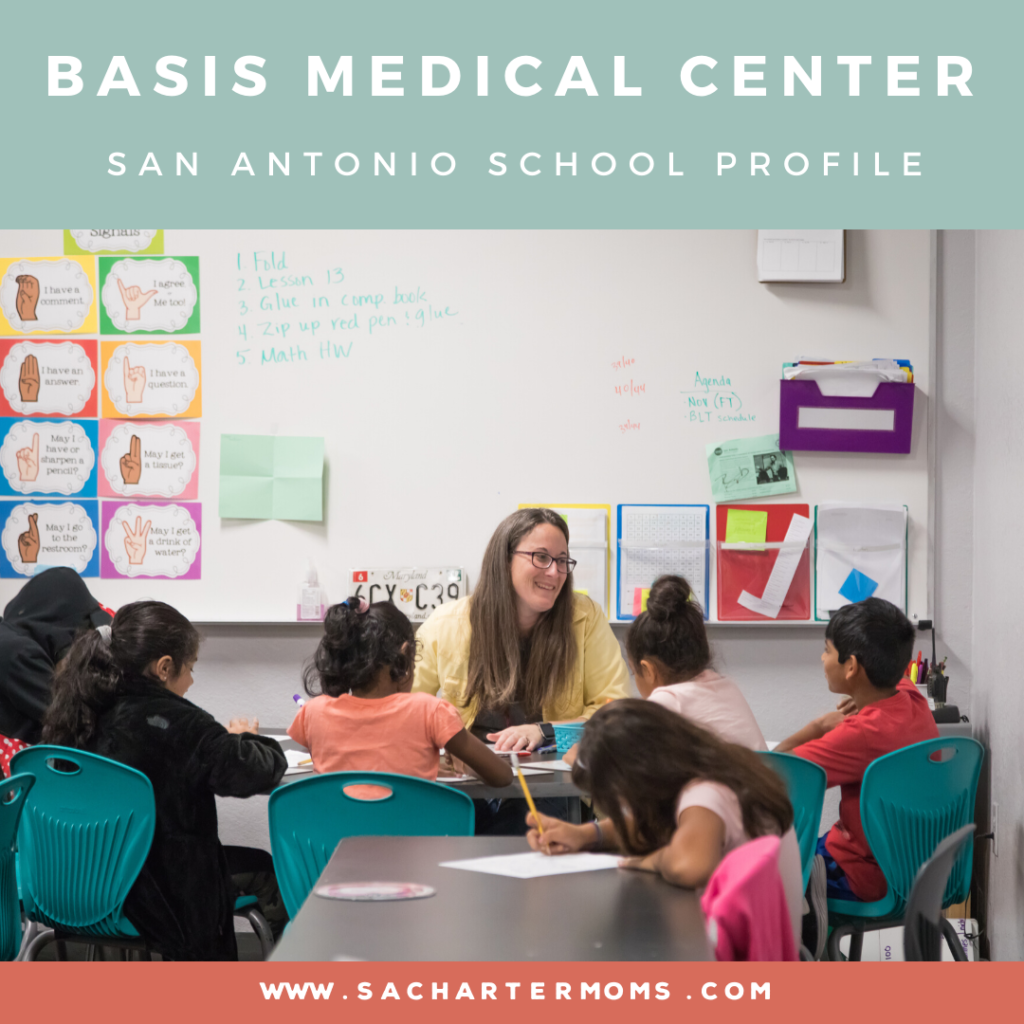
Artículo en español —Post in Spanish
Are you looking for an elementary school that will challenge your student and help them grow more independent—provided they are eager to learn and willing to put in the effort? We recently toured BASIS San Antonio Primary Medical Center Campus and would like to share with you some essential facts about the school as well as a deeper dive into the school culture.
BASIS Medical Center is part of the BASIS Charter Schools network, which includes some of the highest performing schools in the United States and the world. On October 23, 2019, BASIS Texas Charter Schools began accepting applications for enrollment for the 2020–2021 school year; open enrollment continues through December 16, 2019. Learn more about how to enroll your child at BASIS Texas Charter Schools in our recently published BASIS Charter Schools Enrollment Guide.
If you’re reading this post, it’s likely that you are in the process of doing a school search. We recommend that you read this post about finding the right schools. We also suggest you download the San Antonio Charter Schools app and join the San Antonio Charter Moms discussion group on Facebook. A school profile of BASIS San Antonio Shavano Campus is coming soon; also, in 2017, we published a school profile about BASIS San Antonio Primary North Central Campus.
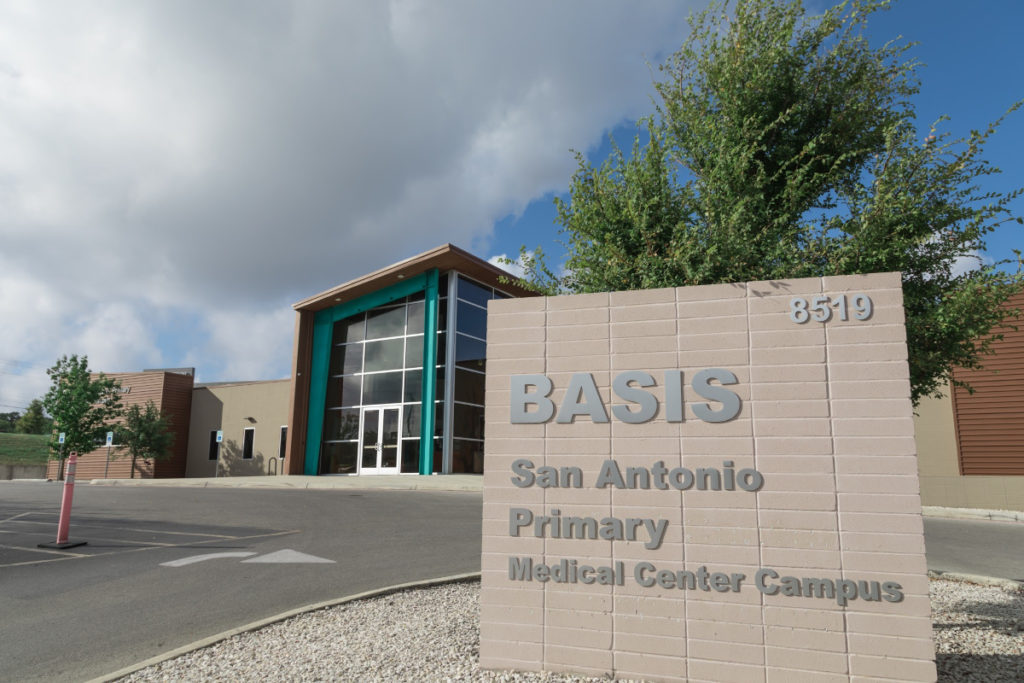
Facts About BASIS Medical Center
BASIS San Antonio Primary Medical Center Campus serves grades K–5 on a purpose-built, modernist campus at 8519 Floyd Curl Dr., San Antonio, TX 78240 (map). From 2013 to 2017, the Medical Center campus served students in fifth grade through high school. The building was remodeled to serve younger students, and in September 2017 the upper grades moved to BASIS San Antonio Shavano Campus. The school website is basised.com/san-antonio-primary-medical-center; you can reach the front desk by phone at 210-319-5525. Kristopher Thomason is the Head of School, and he led us on a tour of the school.
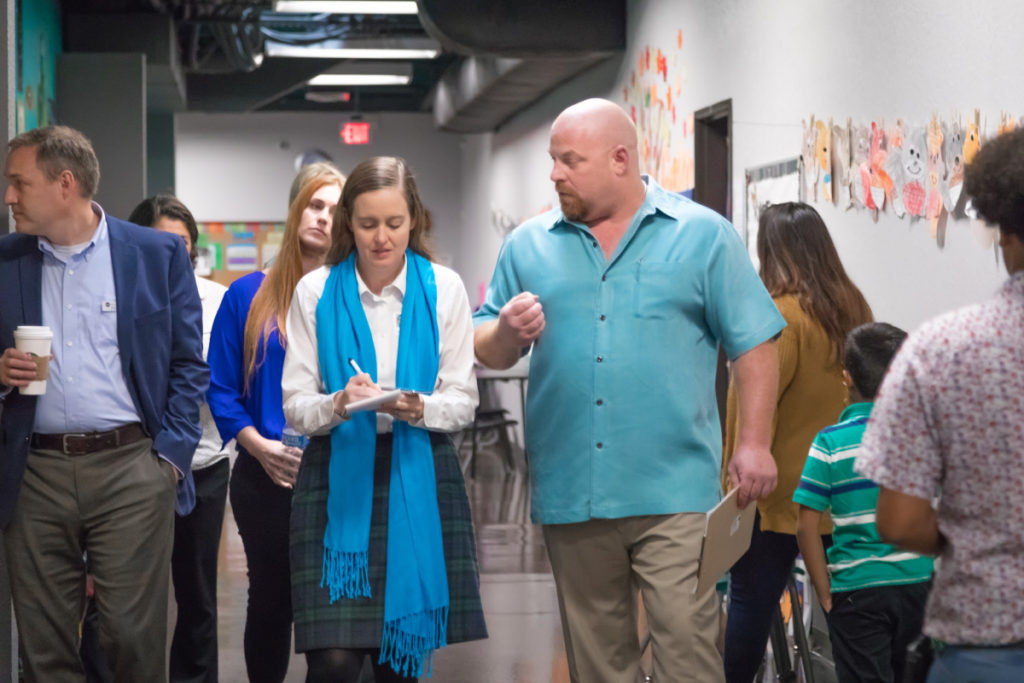
BASIS Charter Schools began in Arizona in 1998; in 2012, BASIS Texas Charter Schools applied for a Generation 17 charter. They have plans to grow, but currently, there is a cluster of three campuses in San Antonio: BASIS San Antonio Primary Medical Center Campus and BASIS San Antonio North Central Campus (also K–5), which both feed into BASIS San Antonio Shavano Campus (6–12).
All three are open enrollment public charter schools, which means they don’t charge tuition, there are no selective admission requirements (unlike magnet schools), and they are open to all students—including special education, 504 plans, and English language learners. The enrollment area for BASIS Texas Charter Schools covers a wide swath, including the entire San Antonio metropolitan area and other parts of central Texas.
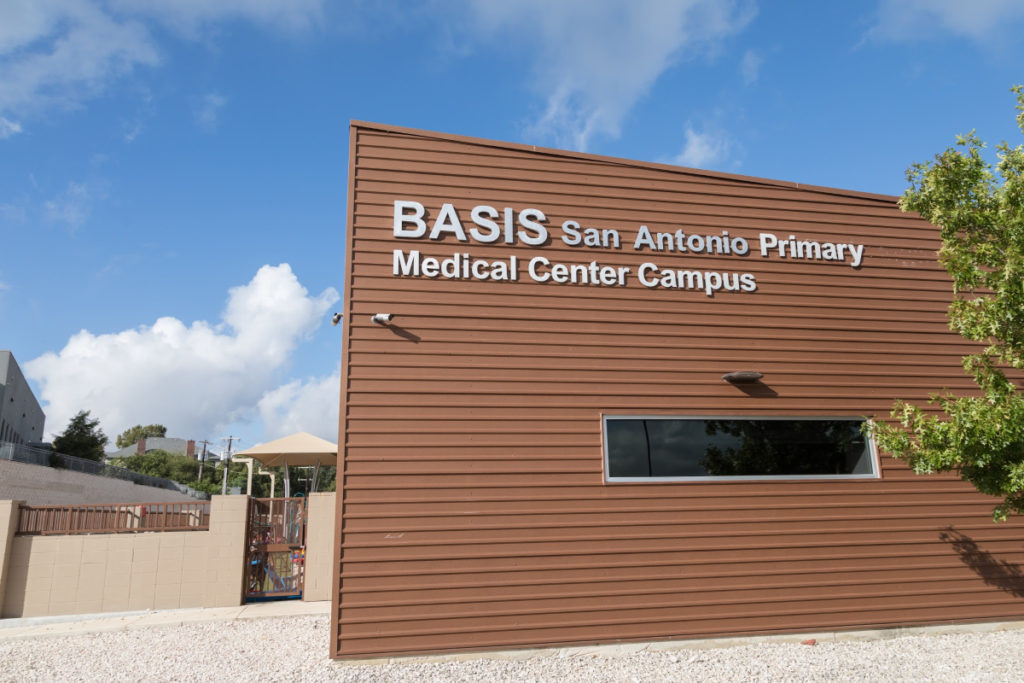
Our BASIS San Antonio Charter Schools Enrollment Guide has more details, but here are some key dates for enrolling your student at BASIS. The best time to apply online is during open enrollment, from October 23, 2019 to December 16, 2019. All applications received during open enrollment have an equal chance of receiving an offer through the random lottery, which will be held on January 14, 2020. Applications received after open enrollment will go on the waiting list.
Last year, BASIS Medical Center had about 760 students across six grade levels, with four sections of about 30–33 students each. There will be about 120 open seats in kindergarten; some of those will go to siblings of current students, who have priority. Because of high student retention, grades 1–5 will have fewer open seats.
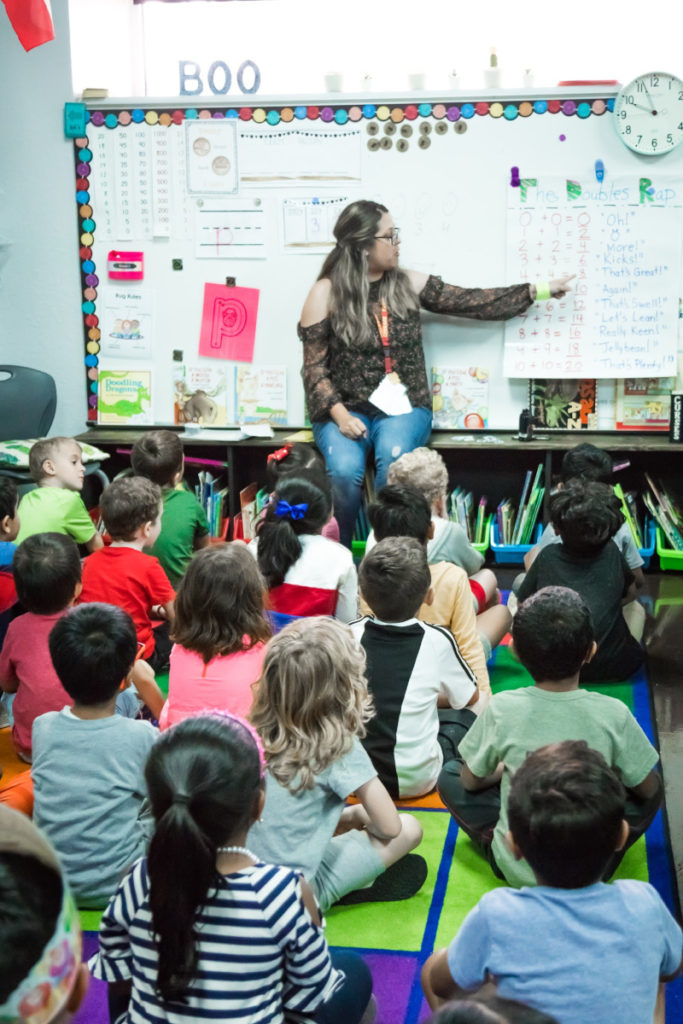
BASIS Medical Center School Report Card
The latest official school report card shows that BASIS Medical Center is a high performing school. The campus earned a distinction in Closing the Gaps. Here are the school’s ratings:
- Overall Performance: A (95)
- Student Achievement: A (93)
- School Progress: B (89)
- Closing the Gaps: A (100)
As a district, BASIS Texas Charter Schools earned a grade of A, as you can see on the district report card. For information about how to interpret Texas school report cards, visit A–F Resources.
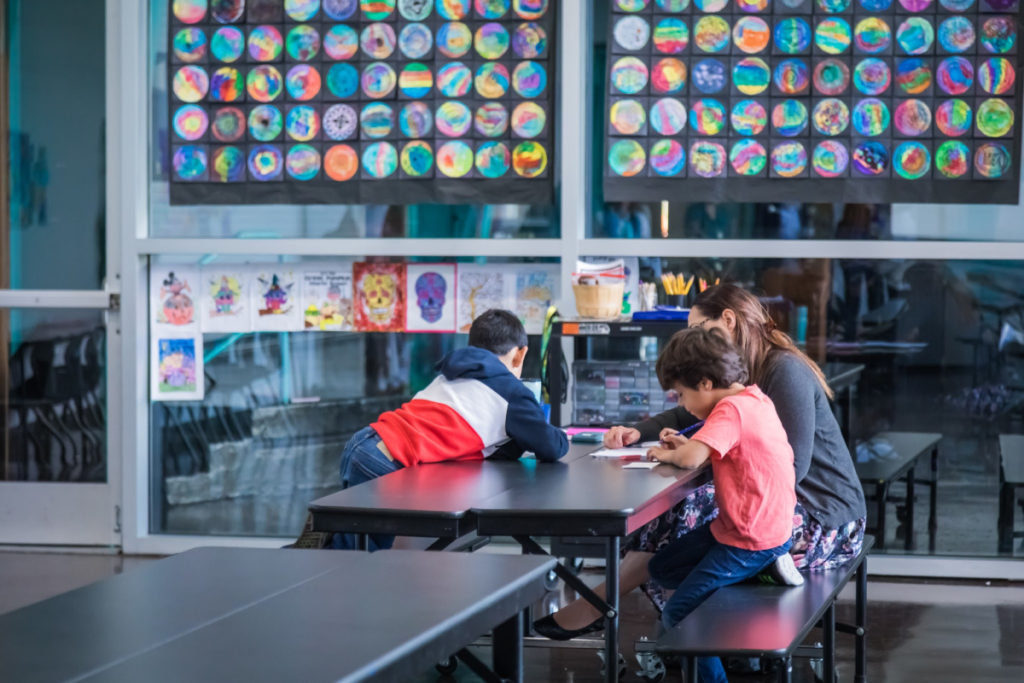
BASIS Medical Center Curriculum and Teachers
BASIS Charter Schools offer a content-rich, liberal arts curriculum. BASIS has a reputation as a STEM school, and it’s true that they offer advanced math and science classes, especially in higher grades, but they also have strong offerings in literature, history, art, music, and drama.
BASIS Charter Schools are also known for hiring teachers who are experts in their fields. In the younger grades, they use a team approach, pairing the subject matter expert teachers with ones who are knowledgeable about child development. The strategy changes for older grades as students grow their study skills and independence.
In kindergarten, a group of about 30–33 students spend most of their day in the same classroom with two teachers, a Kindergarten Expert Teacher (KET) and a Kindergarten Teaching Fellow (KTF). The specials teachers—art, music, drama, Mandarin, engineering, etc.—come to the classrooms. Kindergarten students begin using a Communications Journal, known as a CJ, to write down their homework assignments.
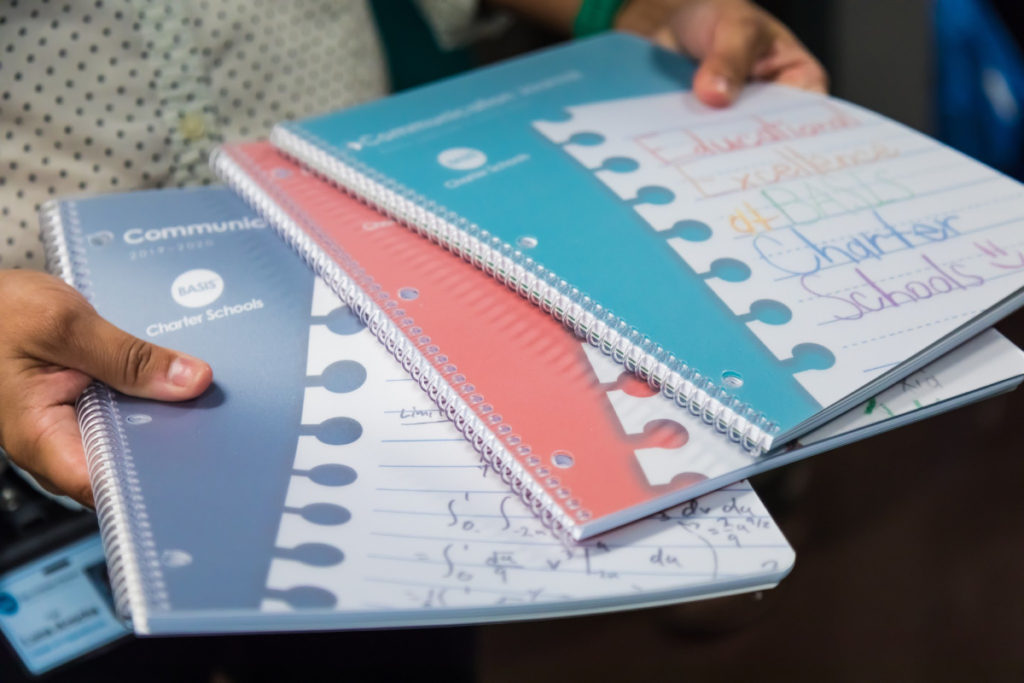
At BASIS Medical Center, the kindergarten students have access to their own playground along the side of the building. They have two recess periods per day, and they also have Movement (PE class). There are four kindergarten classrooms that share easy access to two bathrooms. The students go to the Multi-Purpose Room (MPR) for lunch every day. The parent organization—the BASIS Boosters—manages the lunch program by working with restaurants and caterers; parent donations cover the cost of meals for students from low-income families.
In grades 1–3, the students continue to have two teachers per class, known as Subject Expert Teachers (SETs) and Learning Expert Teachers (LETs). The learning blocks are 85 minutes long. Between classes, the LETs accompany the students as they transition through the hallways. The students keep their stuff in cubbies in the hallways. The students in grades 1–3 learn to write more things down in their CJs. Parents can write questions for teachers in the CJs, too.
For core subjects, the teaching methods can be rather traditional and low tech. We observed a third grade math class in which the teacher led the students through a word problem projected on the board with a document camera, and then the students worked the problem themselves on paper worksheets. The long learning blocks allow the teachers to re-teach important concepts. There are laptop carts on campus, but we didn’t see any in use on our tour. Students are doing more hands-on work than screen time.
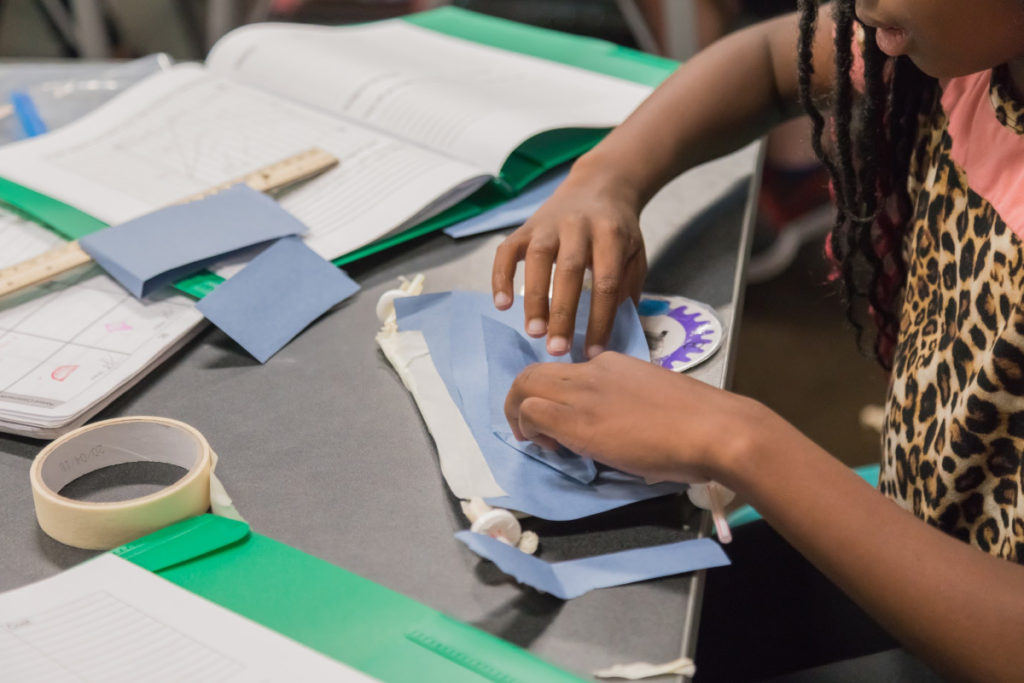
There are also opportunities for interdisciplinary learning: In the Connections class, led by LETs, students work on projects that incorporate lessons they have been studying in different subjects. As Mr. Thomason explained, “It’s connecting every aspect of the day and every subject together into a big project-based curriculum. They get to do these big projects, and it’s just different compared to what they’re learning in math, what they’re learning in science and history at that moment. So it’s taking those pieces and connecting everything. Those lessons are getting retaught in little bits and pieces to help that student retain that information.”
In grades 4–5, the SETs teach solo, without support from LETs. Class periods are shorter—only 50 minutes long. Students don’t need help from a teacher to transition between classes, and they are responsible for keeping their stuff in lockers. In Movement class, the students study martial arts, not only for the physical skills but also for character and discipline. Students in grades 4–5 get one recess period per day. In 5th grade, the students begin studying Latin.
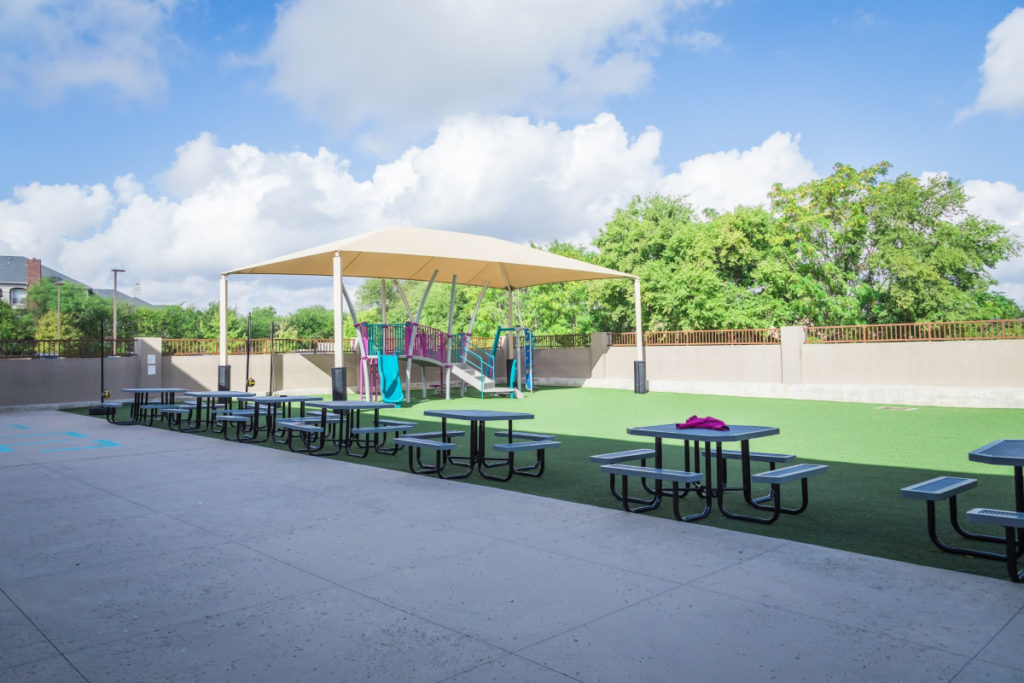
As mentioned earlier, as a public charter school, BASIS Medical Center serves all students, including special education, 504 plans, and English language learners. At the time of our tour, we learned that students at the Medical Center campus speak at least 28 different languages at home.
Any students who are identified as struggling—as well as all new students—receive academic support to target the areas where they need help. For example, as Mr. Thomason explained, a student who needs to build their reading comprehension may get pulled out of class two or four times a week for 15-minute periods for several weeks to learn new skills for understanding texts. Also, every week, the teachers hold scheduled parent hours and student hours—time when teachers welcome parents and students to come visit and ask for help. The teachers also offer free tutoring after school; students can come for help to catch up, or if they want more of a challenge they can ask for enrichment.

Across grade levels, BASIS teachers are given guided autonomy about what to teach and how to teach it. As long as they meet the objectives, the delivery is flexible, and so are their classroom management strategies. For example, they can choose which works of literature to teach, subject to approval by the Director of Academic Programs.
There are no school uniforms, and students are allowed to wear pink or purple hair—“they’re allowed to fly their own flag here,” said Jen Neal, Regional Director of Charter Schools, Texas & Louisiana. If you dictate to students, said Mr. Thomason, “they’ll shut down and they’ll never be able to realize what they had to offer. So if we give them the autonomy to give them their voice, that’s why this is so successful and that’s why we continue.” It’s a team approach that depends on buy-in from teachers, parents, and students.
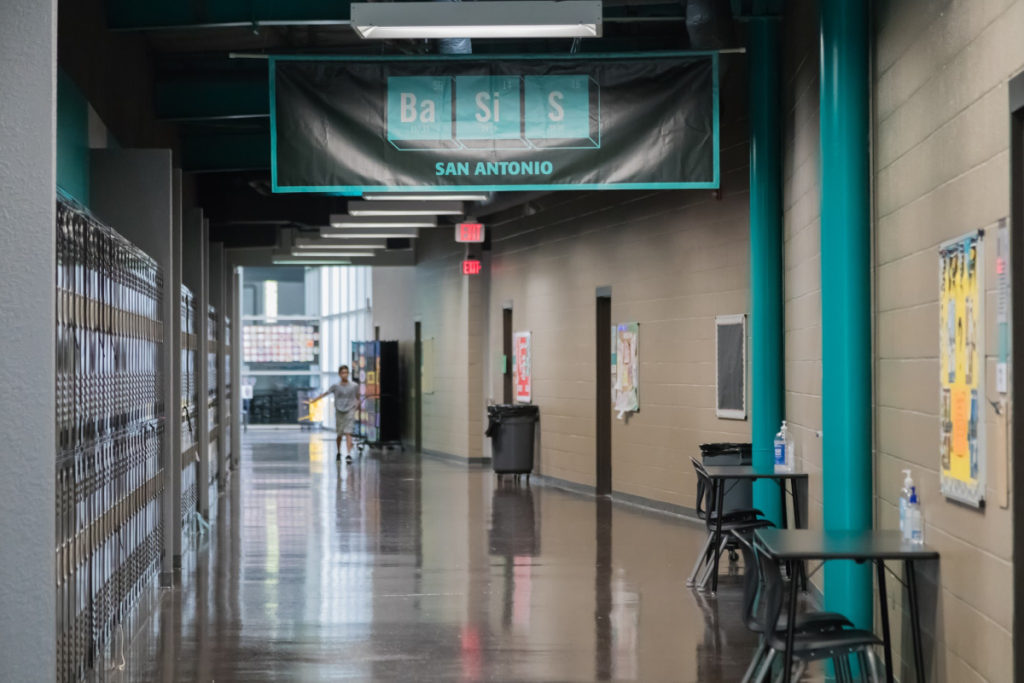
School Culture at BASIS Medical Center
As you can see from BASIS Medical Center’s school calendar for 2019–2020, the school year started on August 15, 2019 and will end on June 5, 2019. BASIS Medical Center does not offer transportation services. The school day is staggered by grade level:
- Kindergarten: 7:35 AM to 3:00 PM
- 1st–3rd: 7:35 AM to 3:25 PM
- 4th–5th: 8:00 AM to 3:45 PM
The school offers child care before and after school. Families can drop off as early at 7:00 AM and pick up as late as 4:00 PM. The fee-based after school program is called Late Bird; it runs as late as 6:00 PM.
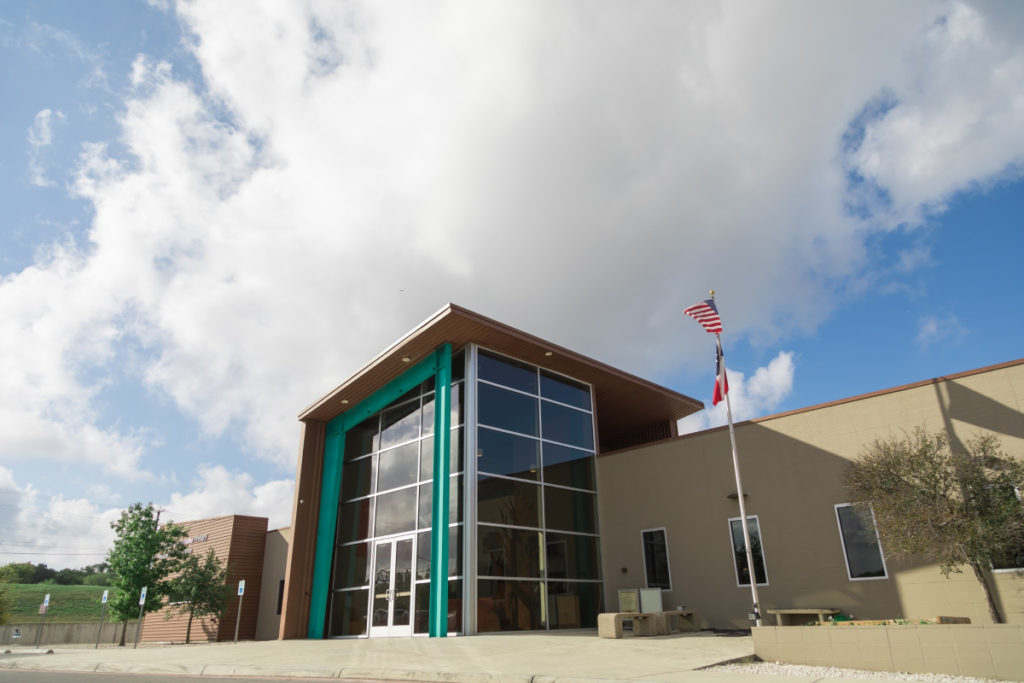
For sports, BASIS Medical Center is part of the Texas Charter School Academic and Athletic League. In recent years, the school has competed in flag football, volleyball, basketball, and soccer. The mascot at BASIS Medical Center is the badger, and the school color is teal. For extracurricular activities, teachers propose a variety of clubs that students can sign up for, including chess, dance, math, music, robotics, science, spelling bee, and yoga.
BASIS Medical Center offers students an opportunity to grow and learn while tackling challenging material. For students to succeed, the whole team needs to work together, including parents and teachers. The Primary curriculum, as presented by teachers who bring their expertise and individuality to the classroom, gives students a solid foundation for the higher grade levels at BASIS Shavano.
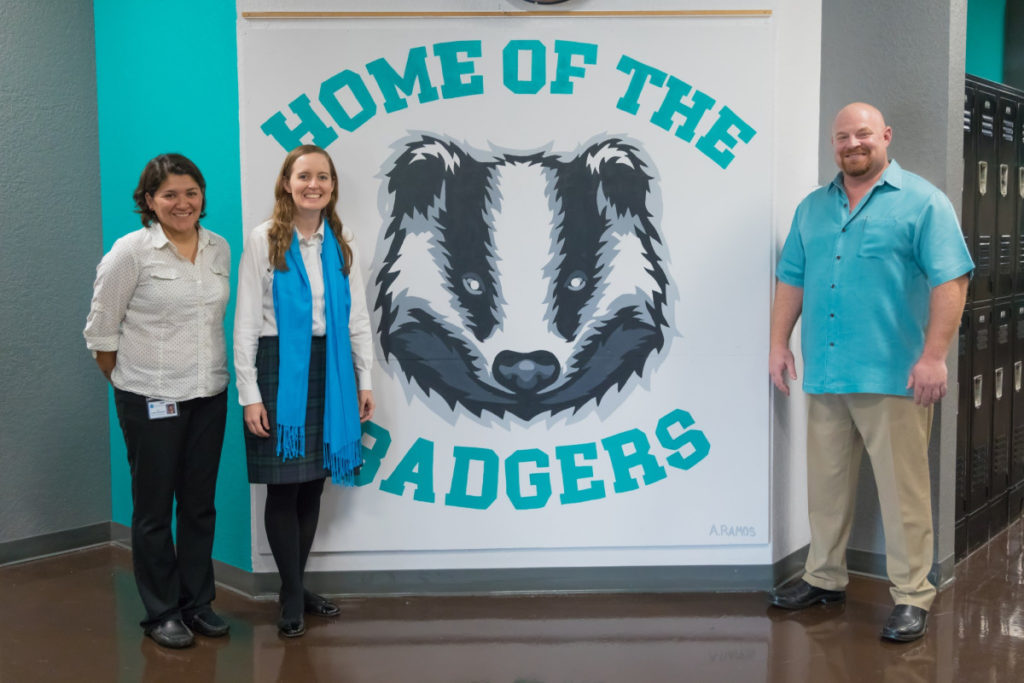
Read More
- “BASIS San Antonio Shavano Campus School Profile,” [add link] San Antonio Charter Moms, November 26, 2019
- “BASIS San Antonio Enrollment Guide,” San Antonio Charter Moms, October 22, 2019
- “San Antonio Charter School Calendars, 2019–20 Edition,” Inga Cotton, San Antonio Charter Moms, September 17, 2019
- “Ribbon Cutting Ceremony at BASIS San Antonio Shavano,” Inga Cotton, San Antonio Charter Moms, September 11, 2018
- “Finding the Right Schools in San Antonio for Your Children—Moms Club of San Antonio NE Edition,” Inga Cotton, San Antonio Charter Moms, April 9, 2018
- “BASIS San Antonio Primary Offers Rigorous Education to Elementary School Students,” Inga Cotton, San Antonio Charter Moms, December 8, 2017
- “20 minutes with Michael & Olga Block: The story behind worldwide school network BASIS,” Melissa Rosequist, Scottsdale Independent, May 3, 2018
- “BASIS San Antonio Primary Offers Rigorous Education to Elementary School Students,” Inga Cotton, San Antonio Charter Moms, December 8, 2017
- “BASIS: Inside the Acclaimed School Network That’s Blended Together the World’s Best Education Practices,” Kate Stringer, The 74, May 17, 2017
- “At BASIS San Antonio, Intellectual Engagement is the Norm,” Bekah McNeel, Rivard Report, March 27, 2014
